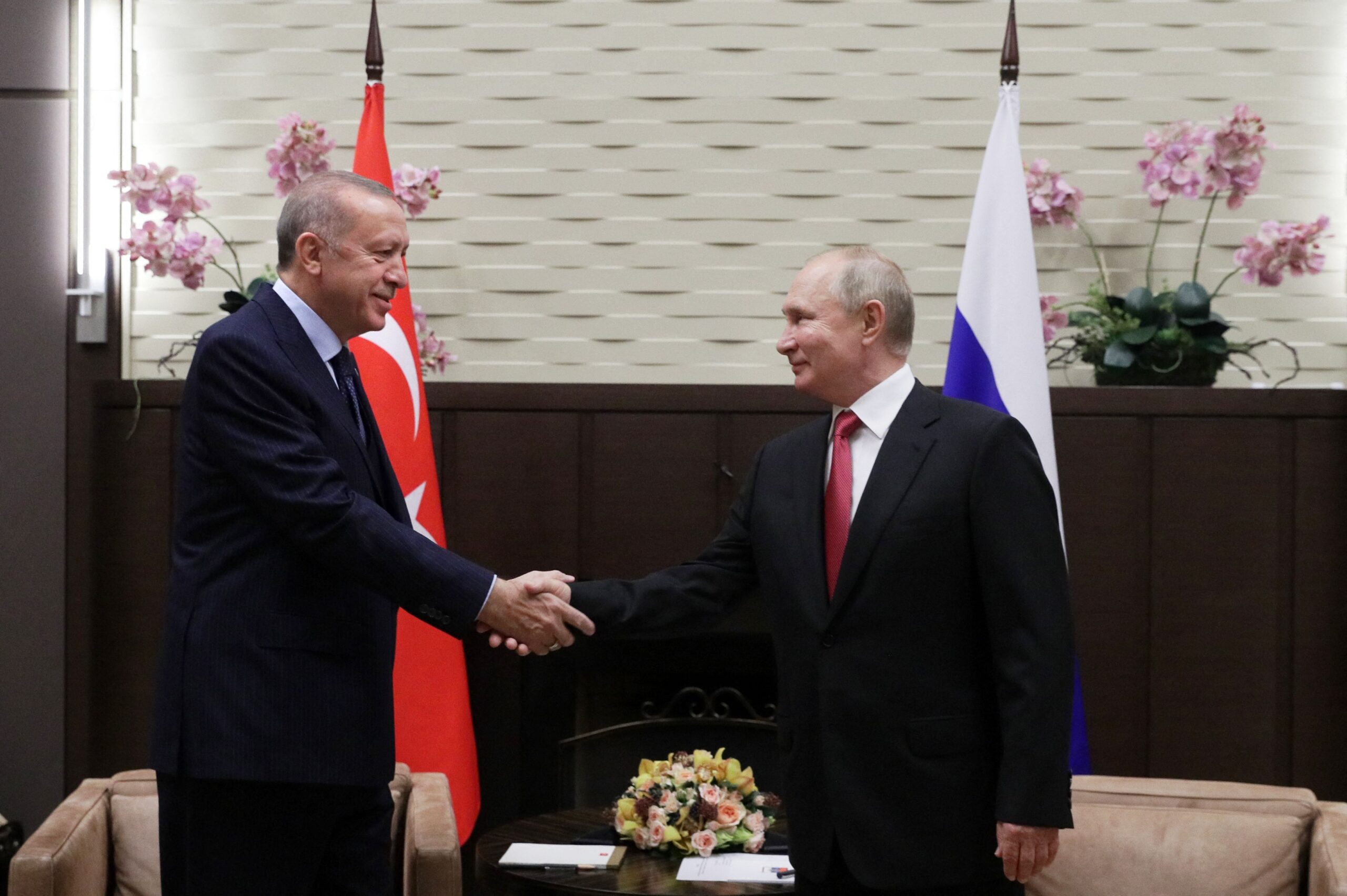
ANKARA: When Turkish President Recep Tayyip Erdogan last month stated that Ankara could look to Russia to buy warplanes and jointly produce military plane engines, it immediately raised eyebrows around the NATO alliance.
Already facing criticism about purchasing the Russian S-400 air defense system, Erdogan’s threat to go all in on buying Russian-made Su-35s and Su-57s triggered another round of debate within the NATO community and Turkey’s own security establishment about whether it is even possible to integrate the Russian planes into Turkey’s NATO-based fleets.
There is likely political posturing at play here. Ankara had already made its first move to replace its aging F-16s when, in September, it tendered a letter of request to Washington to purchase 40 new F-16 viper block 70 and 80 modernization kits. If Russian fighters were Turkey’s first choice, it would not have launched the F-16 effort.
However, the US sanctions against Turkey due to the S-400 purchase, and high US congressional animosity towards Erdogan, have left officials in Ankara highly pessimistic about the estimated $6 billion F-16 deal, which still needs US approval.
Turkish officials argue that Washington’s decision to kick Turkey out of the F-35 program in 2019 put them in a bind. The modernization project run for Turkey’s fleet of 35 F-16 Block 30s aims to update and extend the lives of the warplanes, but officials believe it isn’t enough.
“We need a stopgap option until TFX, our indigenously produced fifth generation fighter jet in late 2020s comes out,” one Turkish official told Breaking Defense. “Otherwise, not only Turkey’s but NATO’s security in the region will be at risk.”
“This isn’t only about Turkey. It is also about NATO’s capabilities,” the official added.
Two people familiar with the issue told Breaking Defense that the Turkish Defense Ministry, as well as the state procurement agency, have drafted technical reports to analyze the Russian warplanes. Both reports found the Russian warplanes technically insufficient and extremely costly due to Ankara’s need for the adaptation to the Russian systems.
It isn’t clear how many warplanes Turkey may purchase from Russia if it went ahead, but based on previous statements, Ankara would likely look to acquire around 35 units of Su-35 which is seen as an equivalent of F-16s, or a smaller number of fifth generation Su-57s.
Can Kasapoglu, director of the defense research program at the Istanbul-based think-tank EDAM, believes the F-16 Viper modernization deal is Turkey’s primary plan to cover the gap until its national combat aircraft can enter into service.
“Turkey does not have a stopgap option other than the F-16V due to various reasons such as political hardships for a European option, technical and geopolitical for the Russian stopgap options,” Kasapoglu said. “There is no second-best stopgap way-out.”
Ozgur Eksi, editor-in-chief of the defense website TurDef.com, disagrees. He believes that if Ankara cannot complete the F-16 deal with Washington, Swedish-made Saab JAS 39 Gripen fighter jets could be an alternative, as they fall within the NATO interoperability standards and are comparatively cheaper.
Both men agree, however, that bringing Russian fighters into Turkey’s fleets would come with not just political, but technical and logistical challenges.
“From a military standpoint, operating a mixed-arsenal of Russian and American aircraft would be extremely costly and burdensome for any given nation,” Kasapoglu said. “[The] purchasing Russian aircraft would be an additional burden to buy Russian munitions, spare parts, sub-systems, sensors and so on. It would also mark operational dependence on the Russians from certification of additional features, such as Turkey’s indigenous smart munitions to indigenous sensors. “
Ismail Demir, the head of the Turkish state defense procurement agency known as SSB, hinted at similar concerns earlier this year, but said that Turkey simply cannot close the door to the Russian option.
“A decision on purchasing the Russian planes would mean an enormous change in our [defense] system in our scenarios,” he told a Turkish newspaper in March. “It would necessitate a series of changes from pilot training to maintenance of the planes. But we cannot completely say no to [the Russian planes], especially if we find ourselves in a really hard situation.”
So, should the US Congress block the F-16 sale or the Biden administration simply not approve it, what would be the alternative?
“Should the Congress block the sale, however, the Turkish administration can opt for a reactionary response. And the Russians will probably offer additional favors to make it happen,” Kasapoglu said.

